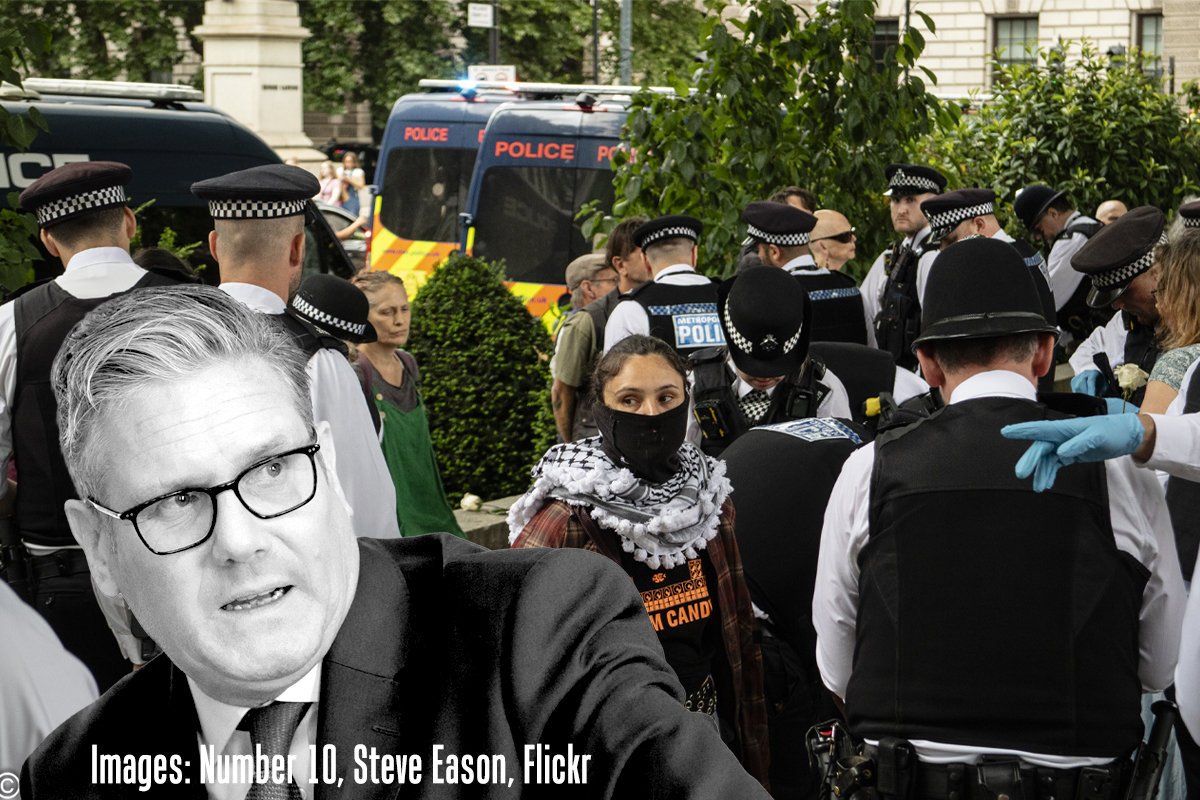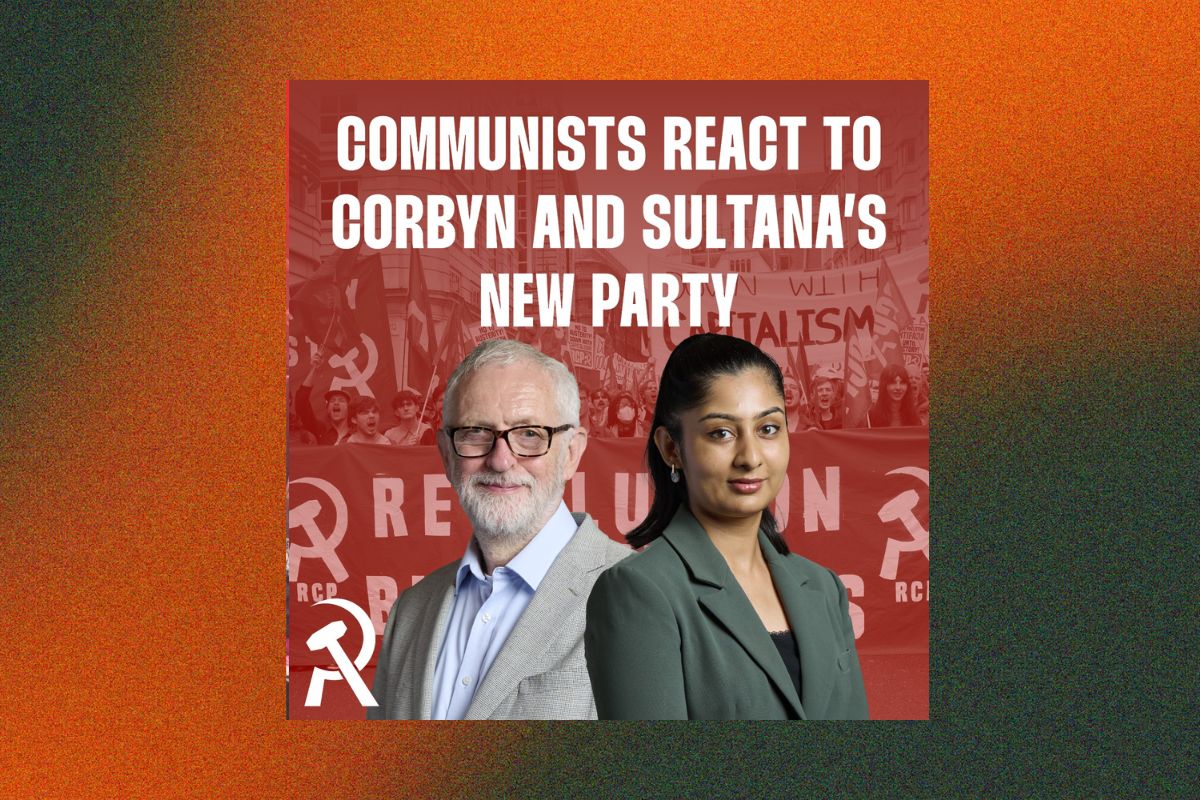Russell Brand’s appearance on Question Time last week demonstrated the real mood that exists within society, with the comedian receiving the largest applause from the audience for his fiery rhetoric against the bankers and bosses. Brand’s rising popularity is yet another expression of the growing radicalisation amongst workers and youth in Britain.
Russell Brand’s appearance on Question Time on Thursday 11th December – billed as a Battle of the Titans, with UKIP leader, Nigel Farage, also appearing on the panel – demonstrated the real mood that exists within society. The popular comedian (and now author), with his contributions attacking the bosses and the bankers, received the biggest applause and cheers from the audience during the hour-long show. In comparison, Farage was frequently heckled and booed for his attempts to blame immigrants for declining living standards. This contrast demonstrates, on the one-hand, that the hype surrounding the rise of UKIP is largely media-made; and, on the other hand, that the public is far to the left of all the existing political parties.
It is easy to entirely dismiss Brand for his flowery speech, clownish behaviour and casual sexism; but his growing popularity amongst workers and youth cannot be ignored. Speaking with passion and honesty, rather than with the obscure hypocritical Orwellian doublespeak of most politicians, Brand has helped to provide a valuable voice to those suffering from the effects of capitalist crisis. At a time when all the mainstream parties offer nothing but different shades of austerity, Brand’s speeches, explicitly blaming the capitalists and calling for revolution, are finding an echo amongst many ordinary people and are chiming with the mood of radicalisation in society.
Class analysis
Brand’s own thoughts, meanwhile, have clearly developed over time since his entrance onto the scene of political commentary with his now infamous interview with Jeremy Paxman. His YouTube channel, the Trews (“just like the news, if the news was true”), for example, has moved away from eclectic New Age ramblings to a clearer, socialist, class-based perspective.
At the same time, Brand has already begun to use his popularity to support and draw attention to important events and class struggles, like the protests surrounding the selling off of the New Era council estate in East London. In this way, the comedian-turned-activist is going beyond mere rhetoric and is actually taking concrete steps to help organise and develop the movement.
Vitriol and hypocrisy
It is for all these reasons that Brand has become a lightning rod for the vitriol of the ruling class, with bourgeois mouthpieces such as the Murdoch-owned newspaper The Sun attacking the comedian, calling him a “hypocrite” for the fact that Brand criticises the rich whilst continuing to live a celebrity lifestyle. Displaying his own political development, however, Brand has turned these personal attacks back on his opponents, using them as an opportunity to highlight the hypocrisy of the ruling class and expose The Sun for what it really is: a useful propaganda tool for the bourgeoisie; a big-business-owned, tax-dodging media outlet that diverts attention from real working-class issues by leading smear campaigns against the people fighting these injustices, like Brand himself.
These personal attacks by The Sun on Brand, in addition, demonstrate the deep concerns within the ruling class, who are fearful of the effect that this popular figure’s fiery speeches and solidarity for working class struggles are having by providing an expression to the radicalisation amongst workers and youth. With his sharp criticism of the whole economic system and political establishment, Brand is highlighting the rottenness of capitalism and exposing the hypocrisy of those who defend it; in doing so, he is helping to further radicalise people and draw greater numbers into political activity.
For a revolutionary socialist programme
Of course, Brand still has a long way to go. As his book Revolution shows, he doesn’t present a clear socialist alternative, seeing revolution as a spiritual shift in the consciousness of individuals. Nonetheless, he seems open to criticism, and his base of support may push him to develop a more fully-fleshed-out strategy. When a man from the Question Time audience told Brand to stop preaching and instead run for parliament, he received an enormous round of applause. Brand replied that he won’t do so because he’s afraid of “turning into one of them”. This was the lowest point of Brand’s appearance, with the same audience member shouting back “you beat addiction, you can run for parliament!” and being greeted with enthusiasm by the audience. Even Nigel Farage exclaimed “here is your electorate!”.
It is to his credit that Russell Brand has no illusions in the sham of parliamentary democracy; but outside of an immediate revolutionary situation, ordinary people will inevitably look to this official representation of society. Radical words and expressions of support from popular individuals are not enough in the fight to change society. What is needed is an organised political movement with a clear revolutionary socialist programme.
Sharp turns and sudden changes
The conditions of the workers and the youth of Britain is worsening by the day and amongst them there is a deep hatred towards the Establishment, the rich and the powerful. The main problem is that this mood is not being expressed from within the labour movement. The labour leaders, who are supposed to organise and lead the movement, have completely betrayed this cause. At a time when capitalism is going from one crisis to another, these people are doing their utmost to defend the system and justify the pain that it causes.
The masses are disgusted by this blatant and open betrayal. It is under these conditions, with enormous pressures building up in the depths of the working class, and with a leadership of the class that is completely out of touch with the situation, that people like Russell Brand and Owen Jones are able to come to the fore. By taking a radical and bold position and saying things as they are, they are providing a voice to the anger, frustrations, and concerns of the vast majority in society.
This indicates that big events are on the horizon in Britain – and internationally – including future mass movements of workers and youth. One cannot say for certain what is going to happen. What is clear, however, is that society has entered a new epoch – an epoch of sharp turns and sudden changes, with instability at every level; a “new normality” of crisis, austerity, and attacks on living standards; a period of intense battles between the classes, in which nothing from the past can any longer be taken for granted. In one way or another, the anger accumulating in society will have to find an outlet.






